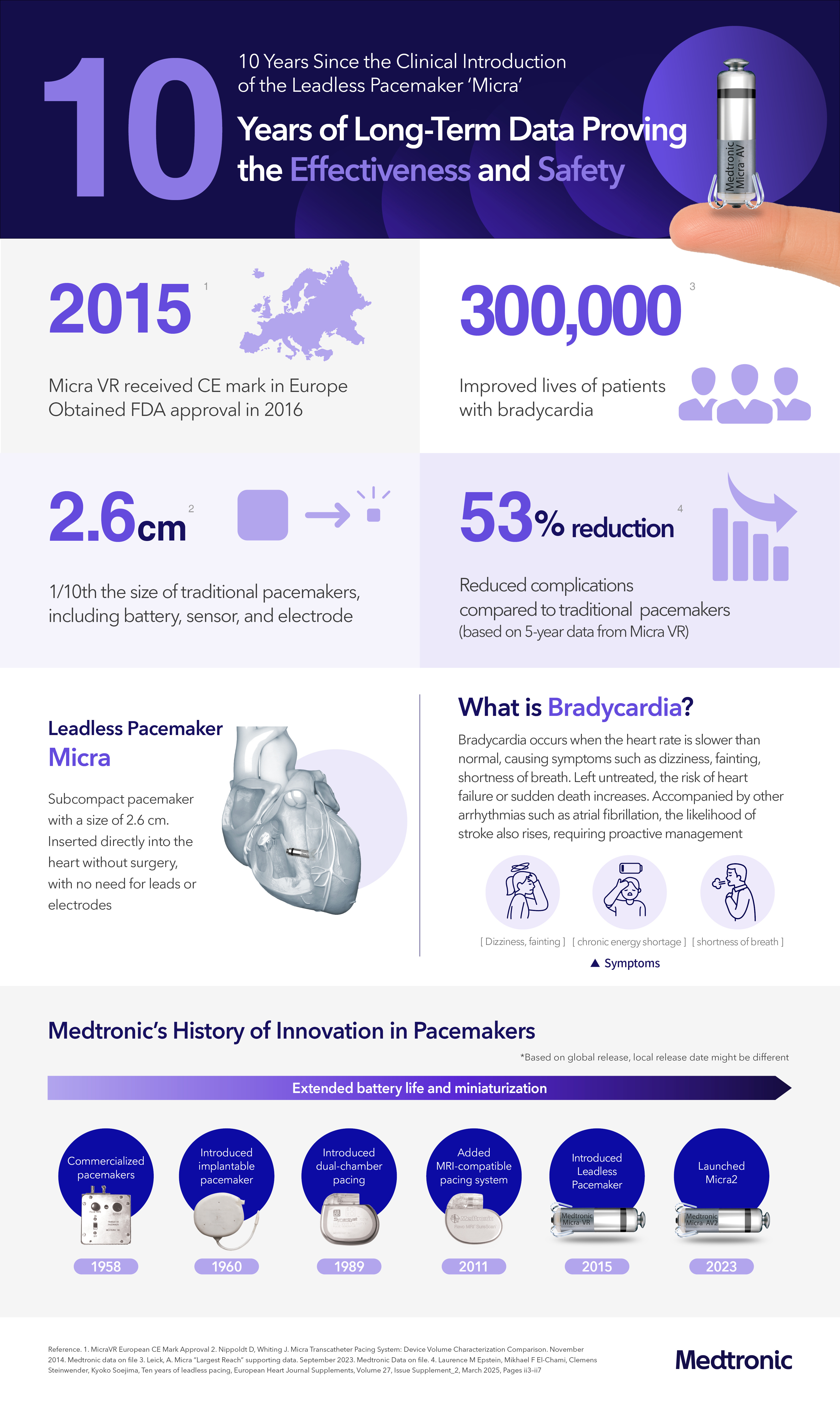Medtronic is marking the 10th anniversary of its leadless pacemaker Micra, saying the device has now been implanted in more than 300,000 patients worldwide and continues to show fewer complications than traditional transvenous systems.
Leadless pacemakers place the battery, sensors and circuitry in a vitamin-pill–sized capsule that sits inside the heart, avoiding the chest pocket and leads required with conventional devices. Medtronic launched Micra in 2015 after CE Mark clearance. Micra VR is the single-chamber version that paces the right ventricle. Micra AV adds an accelerometer to sense atrial contractions and time ventricular pacing for atrioventricular synchrony.

Medtronic Korea said in a Monday release that published data show lower adverse-event rates. It cited a 179-center post-approval registry of 1,817 Micra VR patients reporting a 4.5 percent major complication rate at five years with no removals for infection, and an analysis of 7,471 U.S. Medicare beneficiaries treated with Micra AV showing a 5.3 percent rate at two years.
Clinicians say the pocket- and lead-free design is driving the shift. “Leadless pacemakers reduce the risk of complications and discomfort associated with subcutaneous pockets,” said Jun Kim, M.D., education director at the Korean Heart Rhythm Society and a cardiology professor at Asan Medical Center. “Based on its proven safety, use is expected to broaden to more arrhythmia patients over time,” he said.
In Korea, Medtronic introduced Micra VR in 2021 and Micra AV in 2023. More than 2,000 local patients had received a Micra as of July 2025, the company said. The next-generation Micra VR2 and AV2 (with battery life up to 17 years) are awaiting launch in the Korean market.
Bradyarrhythmia, typically defined as a resting heart rate below 60 beats per minute, remains undertreated in Korea, with 55,780 people diagnosed in 2024 but only 7,016 receiving pacemakers, according to figures cited by Medtronic Korea. Untreated cases can lead to dizziness, syncope and shortness of breath, and when combined with other arrhythmias such as atrial fibrillation, may increase stroke risk.
Related articles
- SNUH 1st in Korea to adopt Medtronic’s Hugo robotic surgery system
- Medtronic's drug-coated balloon for dialysis patients to be reimbursed in Korea starting May
- Pulsed field ablation gains momentum in Korea as game-changing atrial fibrillation treatment
- Konkuk University Medical Center performs 1st pulsed field ablation for atrial fibrillation
- 'Anticoagulant monotherapy safer than dual therapy in AF patients with stents'

